Capt Ade Olopoenia
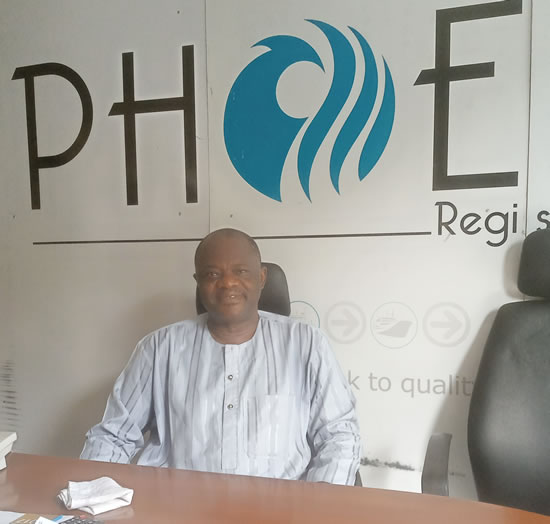
Highlights of his interview
Born in 1953 at Okeho, Kajola local government of Lagos State to Imam Olopoenia and Hosenat Abebi Olopoenia; primary school at Ansar-ud-Deen Primary School Okeho between 1959 and 1964; 1966, attended Okeho Grammar School, Iseyin, Oyo State; came to Lagos in 1968 and got admission at Eko Boys High School in 1969, passed out in 1972; in 1974, was employed, with seven others, by the Federal Ministry of Transport as a deck officer cadet on behalf of the Inland Waterways Department (IWD); four were posted to IWD at Warri while four others were sent to IWD at Lokoja until September 1975; narrated the details of their assignments and the situation of IWD activities at the time; were trained in basic seamanship courses; well-equipped IWD workshops and slipways that were repairing ships of all sizes; expatriates heads of divisions at IWD in those days; they were employed to understudy the expatriates and take over from them; some early Nigerian officers in the IWD were Capt Anyaeji, Capt Agbakoba; in 1975 they were sent to the UK for further training under an arrangement with NNSL so that they boarded NNSL ships for sea-time training; had wanted to join the military, the navy, as an initial aspiration; after secondary school was undecided how to proceed until he saw the Federal Ministry of Transport advertisement in the newspaper of the vacancy; mentions some of his peers such as Sonny Nosakhare, Olu Ekundayo, late Felix Okadigbo, Agboola Daniel, and NNSL peers such as Capt Ilori, Capt Begusa, Capt Olokor and Capt Agaba; he was sent to Plymouth School of Maritime Studies; mentions some bosom friends such as Jab Oyedeji, whom he stayed with several times in Liverpool, Capt Mohammed Afolabi, Oluwadare and Tola Ogundein who died during the sinking of Mv River Gurara, Capt Ishola, Capt Alao, Capt Sota; first sea voyage was on the Mv Nnamdi Azikiwe in 1975; the ambience very interesting for people like him who had no prior experience of being at sea; explained the schedule of sea time and college time; first routine assignments on board such as basic seamanship jobs like cleaning, assisting the officers and crew on deck, etc; said the food was good and the salons set out like 4-star hotels, the magic of a 21-year old being served in such places; never had sickness or any such thing and had the most enjoyable time of his life during this time; the major cargoes in those days, his assessment of the traffic, mainly consumer goods and manufactures from Europe to West Africa and from logs, cocoa, palm kernels, etc from West Africa to Europe; the port calls; his observations about the onset of containerization and the introduction of the 19 new vessels; their introduction coincided with their batch’s attainment of the officer cadre in the NNSL system and they saw first hand the growing inter-mixture of general cargoes with containers on board their ships; his personal experience about the NNSL new ships and the argument that they were old for the trade, the River Aboine, renamed Ndoni River by Brawal; he was the first master on Aboine and had experience of her continued profitable performance for more than ten years after she was sold to Brawal as scrap; how she was drydocked and operated successfully; the problem with the vessel under NNSL; the excellent condition after the dry-dock and its operation for about ten years before being resold by Brawal; his conclusion therefore that the bane of the NNSL as a company and ship owner was poor management; some of his striking experiences include waiting at anchor at Freetown for three weeks during the time of port congestion in order to avoid the pirate-infested Nigerian waters; the general popularity of Tema port among West African seafarers; his experiences rescuing Nigerian refugees from Equatorial Guinea, when one man on the quayside after seeing him tie a bowline rope came and asked if he was on the Boys Scouts, and he told him that they learn that as well as deck officers; said many ships already had Nigerianized crews by the time they joined but recalled that on one of his voyages, he sailed with the ex-Black Star Line managing director, Capt. Tachie Menson; remembers how he was once asked to leave the 3rd Officer’s cabin by an expatriate Captain of an NNSL ship, not knowing that he had just passed his exams and therefore fit to stay there; he refused the order and the Captain had to leave him there when he was officially communicated that he had passed the 3rd Officer’s exams; narrates how he stayed back at Plymouth University to do a degree programme after his cadetship training; explains his further cadet training at Hull and the need to traverse Liverpool all the time for one thing or the other, necessitating his frequent stays in Liverpool with friends Oyedeji and Afolabi; explains his career path after passing his Class 1 Certificate of Competence exams, that is, to rejoin the Federal Ministry of Transport, IWD, etc; the rigours of trying to get command of a ship at NNSL; work with Yinka Folawiyo’s Nigerian Green Line and Brawal Shipping Line until 1990; Capt Anyaeji’s help to get him back to IWD despite the hesitancy of entrenched bureaucrats who were frustrating his comeback; his memo to the Ministry got the attention of the Permanent Secretary who ordered that he be re-absorbed immediately and he was posted to the Maritime Surveys Division, paving the way for him to become a surveyor; subsequently, he became a NIMASA staff by virtue of the NMA-JOMALIC-GIS merger of 2001; his short stint as master on board an Ibru fish carrier, Mv Kiffi; the difference between a fish carrier and a trawler, how the Kiffi operated; the general outlook of his promotions and career development; his views about the story of NNSL, the problem of management and that the group that were at sea were some of the brightest Nigerians; the office management was the major culprit in the fall of the company; did not have any crippling challenges during his career; said he came down very early because he wanted to work for the Ministry which sponsored his training; felt happy that after rejoining the Ministry he was sent to NIMASA where he retired as a director which many of his colleagues never got the chance of attaining; to sum up, said he is now in his third career having worked at sea, worked ashore, retired as a pensioner and now working as a teaching staff at Martran Maritime Centre set up by the late Captain Omoteso and at Institute of Maritime Studies University of Lagos; also he is the managing director of Phoenix Shipping Register, Apapa Lagos; in conclusion, remembered the days during their voyages to Warri when they used to anchor at Bennet Island and they would organize football matches between his ship and other ships in the vicinity.
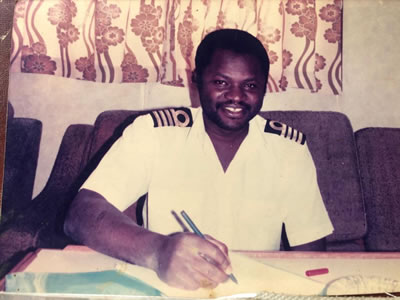
In his office as Master of the Mv Ndoni River in 1989
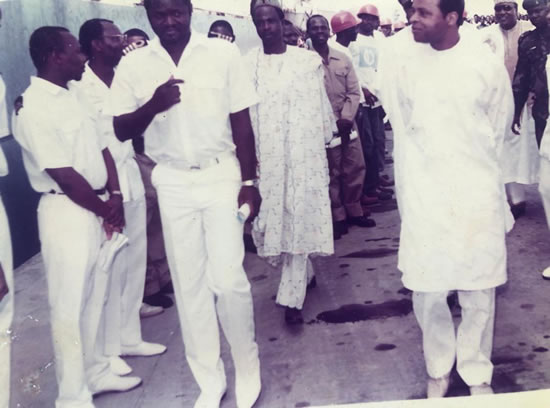
Conducting the Guest of Honour, Transport Minister, Gen. Alani Akinrinade (retd), at the flagging-in of Mv Ndoni River at Apapa Port in 1989
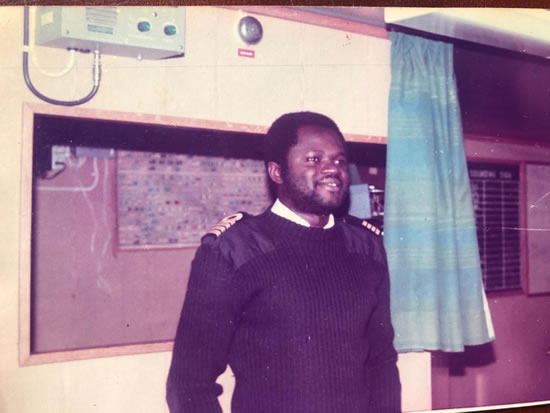
At the bridge of Ndoni River

Olopoenia (1st from left) with other officers of Ndoni River during the flagging in ceremony
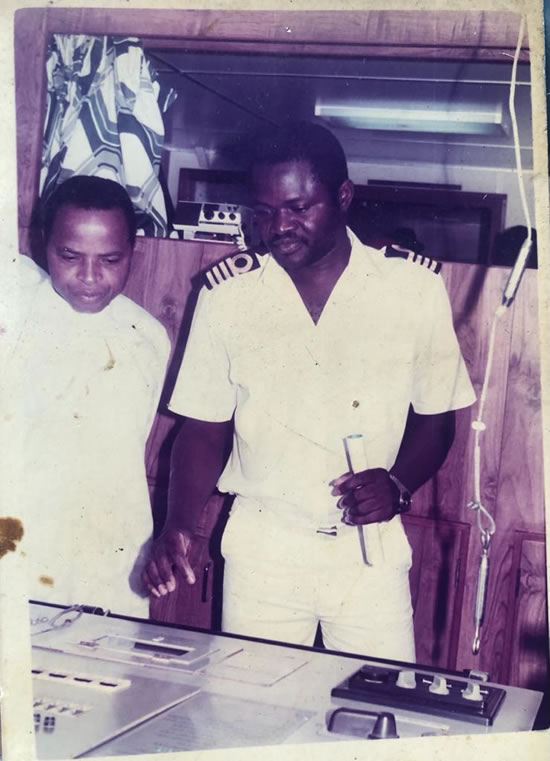
With General Akinrinade (retd) at the bridge during the flagging in ceremony
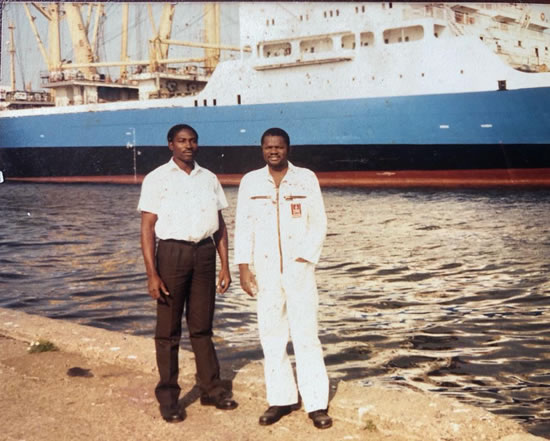
Olopoenia (right) with Second Officer Nosiru at Antwerp during drydocking of Ndoni River (in background)
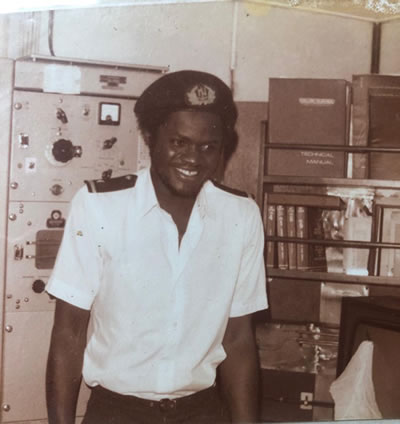
As Third Officer in the Radio Room of Mv River Mada in 1979
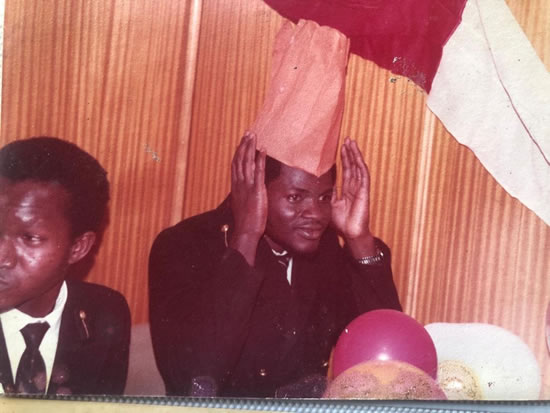
Christmas party aboard Mv Nnamdi Azikiwe in 1976
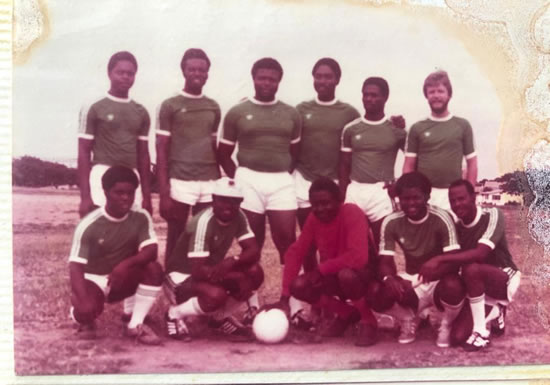
As part of the team of Mv River Mada in a football match with another vessel during anchorage at Benneth Island near Warri in 1978
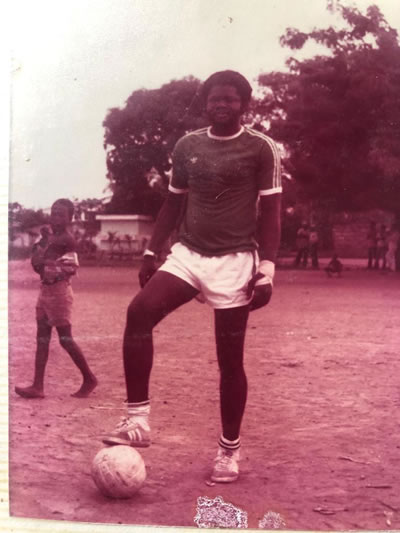
Team player for Mv River Mada

As a cadet aboard Mv Soltula in 1976

In his office as Managing Director of Phoenix Register of Shipping Apapa Lagos 2021
